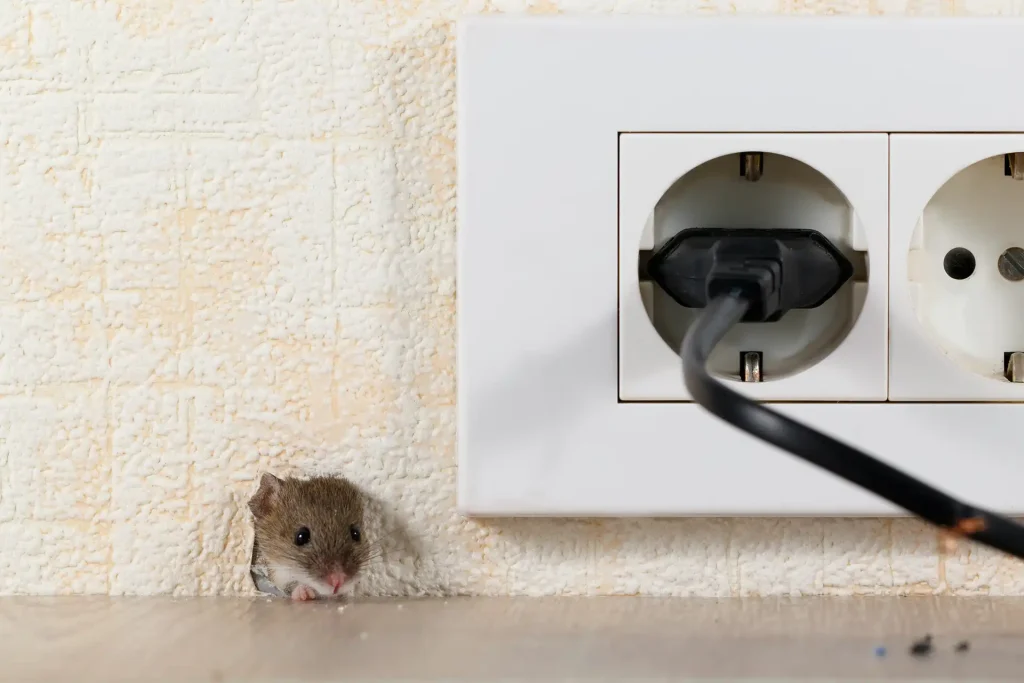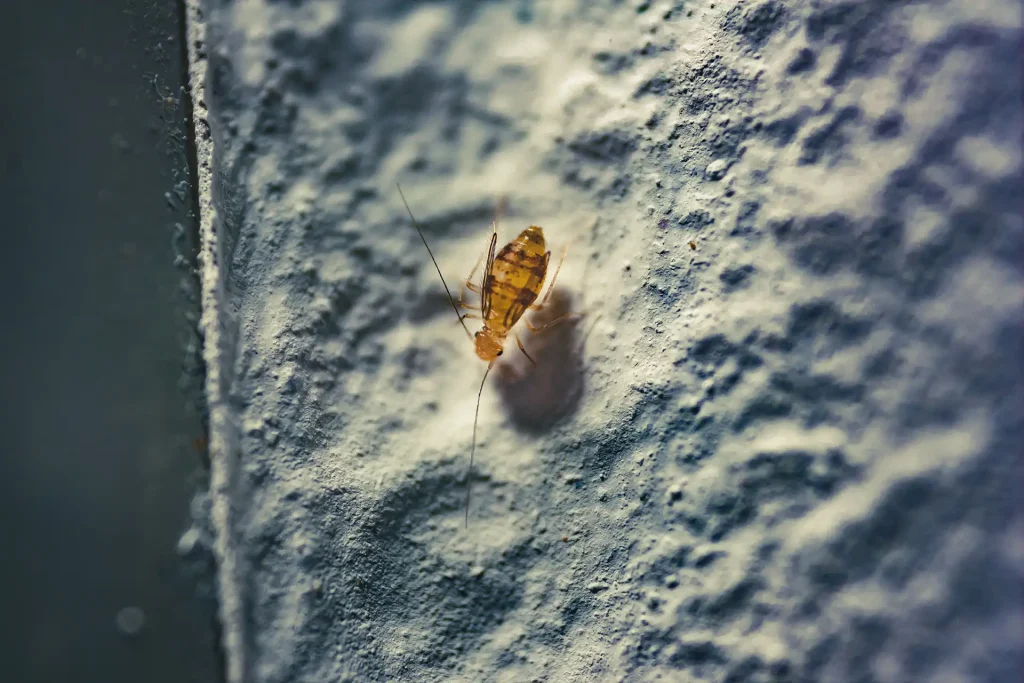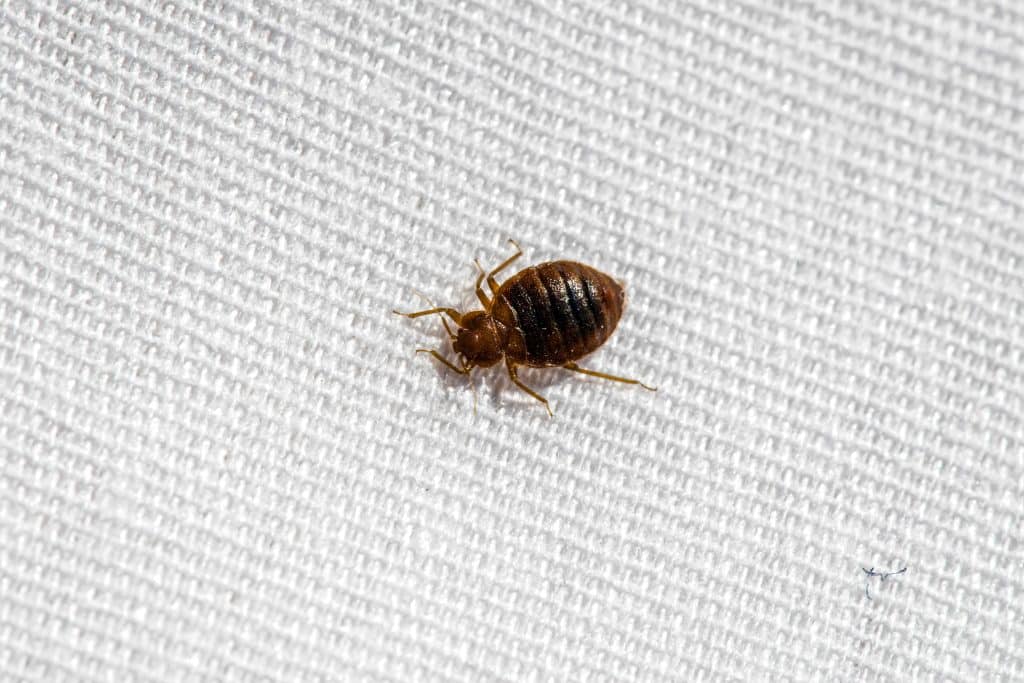For many people, the kitchen is the center of the house, full of the loving warmth and delicious aromas of good food. The mouthwatering aromas that linger in this room can draw together relatives and friends. And some unwanted bugs too! In this article, we’ll tell you about the five kitchen pests you can likely find and how to get rid of them.
5 common kitchen pests
1. Ants
Recognizing the presence of ants in a kitchen is the first step to take when you are trying to figure out if you have a pest problem. Ants making their way from the cupboards to the counter could either be odorous house ants, Argentine ants, or pavement ants.
All three species mentioned above have large appetites and are drawn to food and moisture in the kitchen. You can likely find them in the areas near water pipes and leaky fixtures, on the floor, or in the sink.
2. Cockroaches
Cockroaches are one of the most common insects found in the kitchen. These seasoned hitchhikers can sneak into the home through grocery bags, cardboard boxes, and beverage cartons.
Read also: Cockroach Sightings In Your Home – But Why?
3. Flies
Flies such as houseflies and fruit flies are likely to be seen in the homeowner’s kitchen. While house flies are interested in many different kinds of food, fruit flies, primarily consume fruits and vegetables. Leaving out ripe vegetables and fruits on the counter will quickly draw flies into your home.
4. Pantry Pests
There are many types of pantry pests. Merchant grain beetles and Indian meal moths are just two of the stored product pests you have to deal with. They are drawn to kitchen cabinets and pantries because of the grains and food products being kept in there.
Merchant grain beetles feed on grains like corn and cereal. Indian meal moths, on the other hand, eat more varied products, such as dried fruit, nuts, and pet food.
5. Rodents
Rodents are also frequent health concerns in both commercial and household kitchens. There are certain factors why mice and rats are in your house. If you see any of these signs in your kitchen area, make sure to call a pest control professional.
Why do household pests are drawn to the kitchen?
Pests are drawn to kitchens because they supply three of the necessities they require for their survival: food, water, and shelter. Critters will head toward your kitchen when temperatures drop, due to the abundance of food, drinking water, and heat provided there.
In addition, trash and clutter in the kitchen serve as excellent pest habitats. Leaky faucets and refrigeration appliances can accumulate moisture that lures in insects.
How to prevent kitchen pests?
The key to keeping pests away from the kitchen is to prevent them from accessing food sources, which they need to survive. This can be done by practicing good sanitation in the kitchen such as the following:
- Remove all crumbs and spills on the kitchen counters, cabinets, and refrigerator as soon as possible to avoid attracting unwanted visitors. A few crumbs dropped on the floor can become a feast for ants or mice.
- Make sure to dispose of garbage in closed containers and store food in sealed containers.
- When going out to buy food, check out for expiration dates and pick out items whose packaging is sealed.
- Regularly run the garbage disposal. Keep dishes from piling up by frequently cleaning the kitchen sink and wiping excess moisture.
- Keep your pipes well cleaned up to avoid potential leaks due to blockages.
What are the dangers posed by kitchen pests?
Pests that may infest kitchens can ruin meals and could result in major health concerns if left unchecked. The housefly is known to transmit over 100 different pathogenic organisms, including typhoid, salmonellosis, and tuberculosis.
Rodents are particularly serious, as they can spread disease, bring fleas into a home, and cause allergies in people. Meanwhile, cockroaches can bring allergic reactions to the living space while spreading food-borne pathogens.
Read also: What You Don’t Know About Pests That Cause Allergies
So, how do you get rid of kitchen bugs?
If you want to get rid of kitchen pests, contact a NEA pest control expert in Singapore. A seasoned specialist will inspect to find out the source of the issue and recommend the best course of action.








